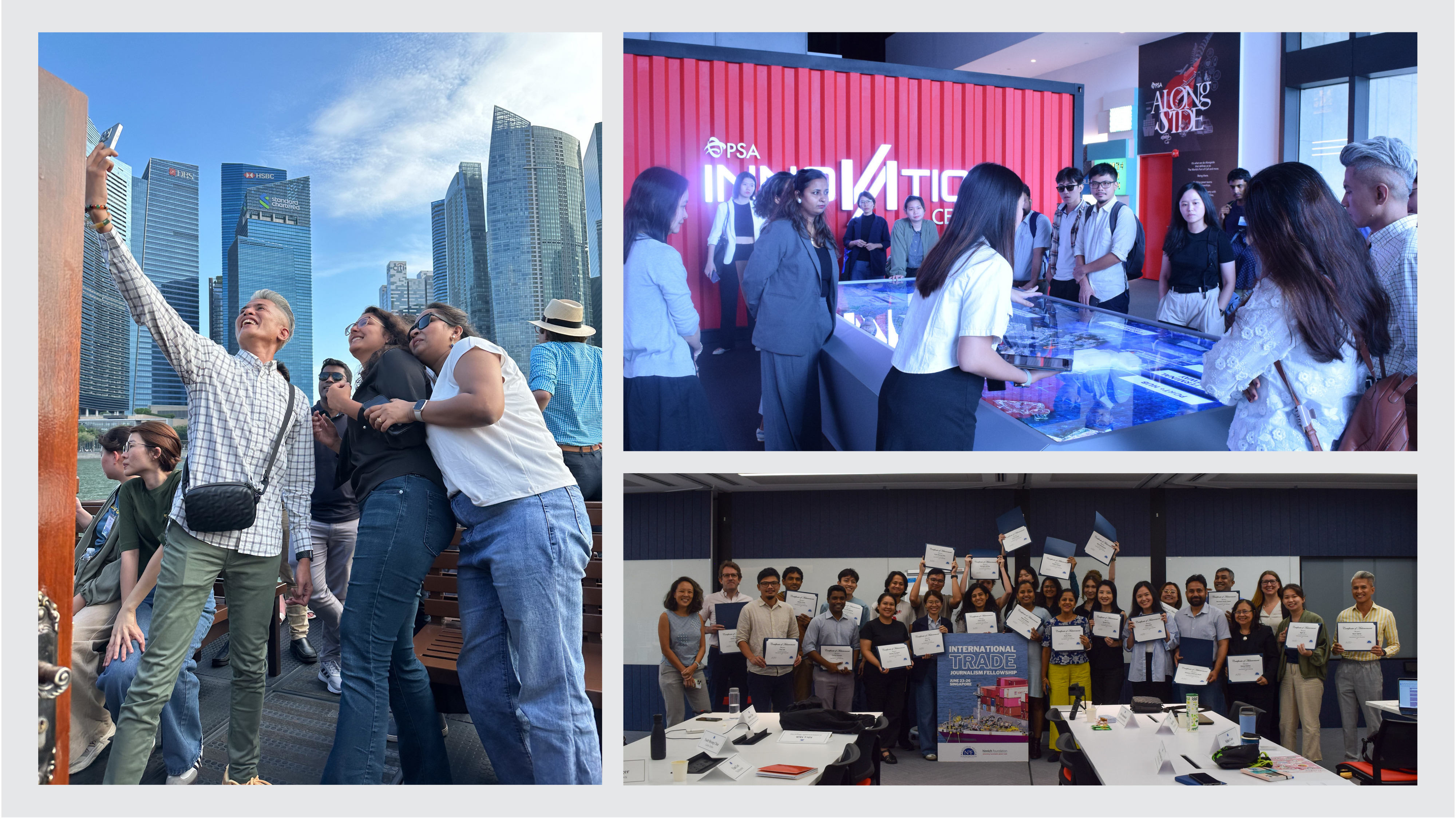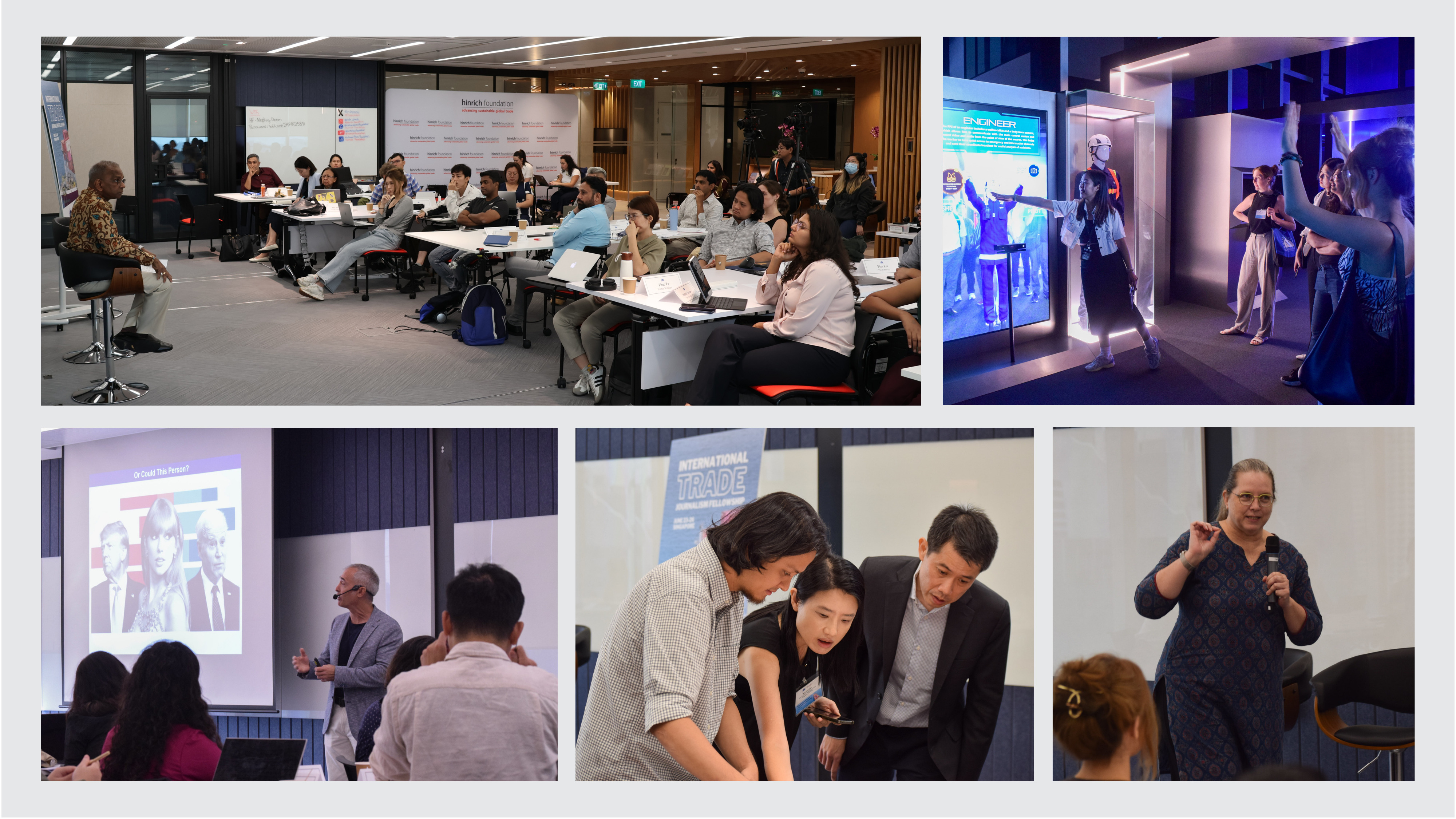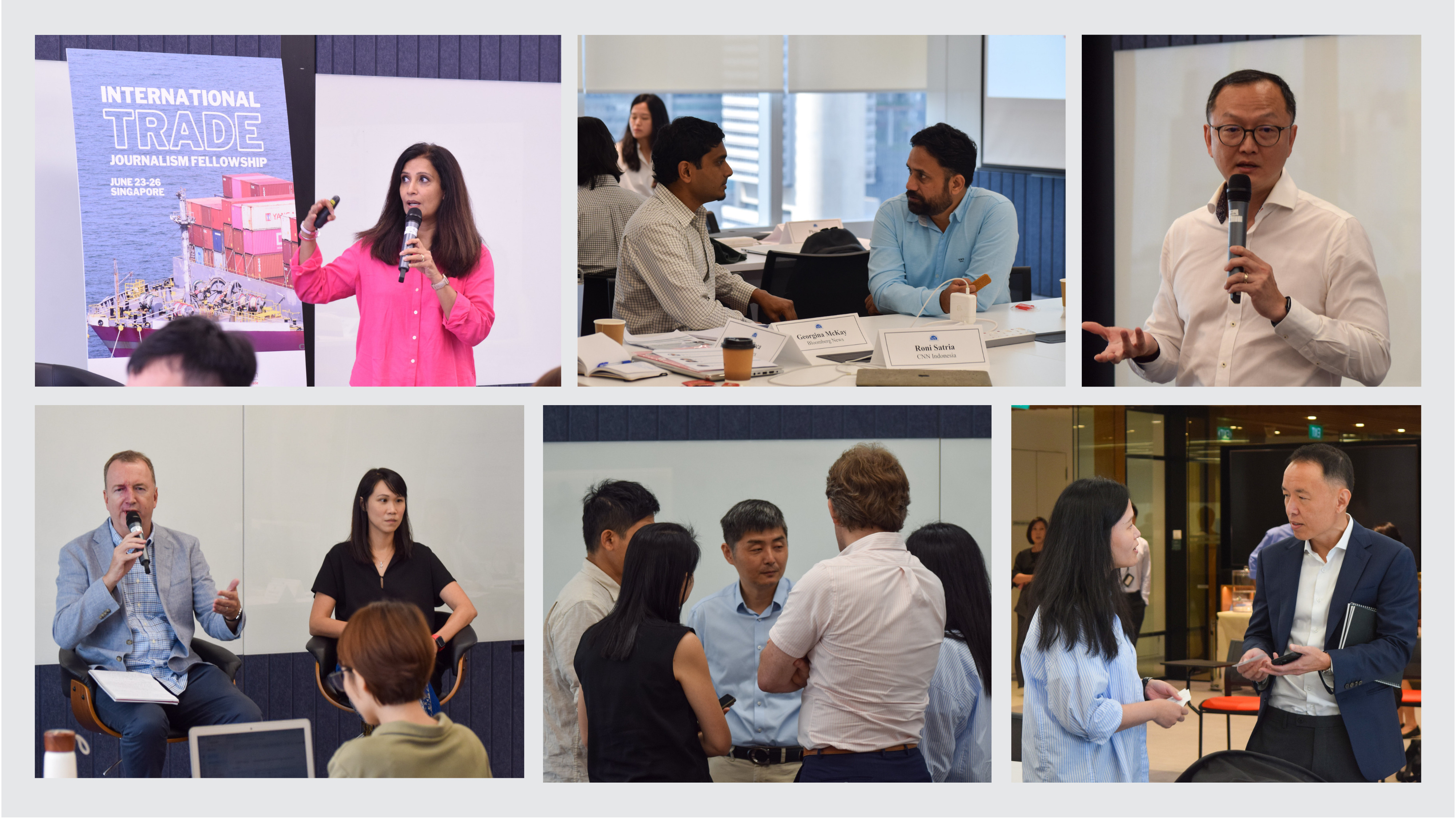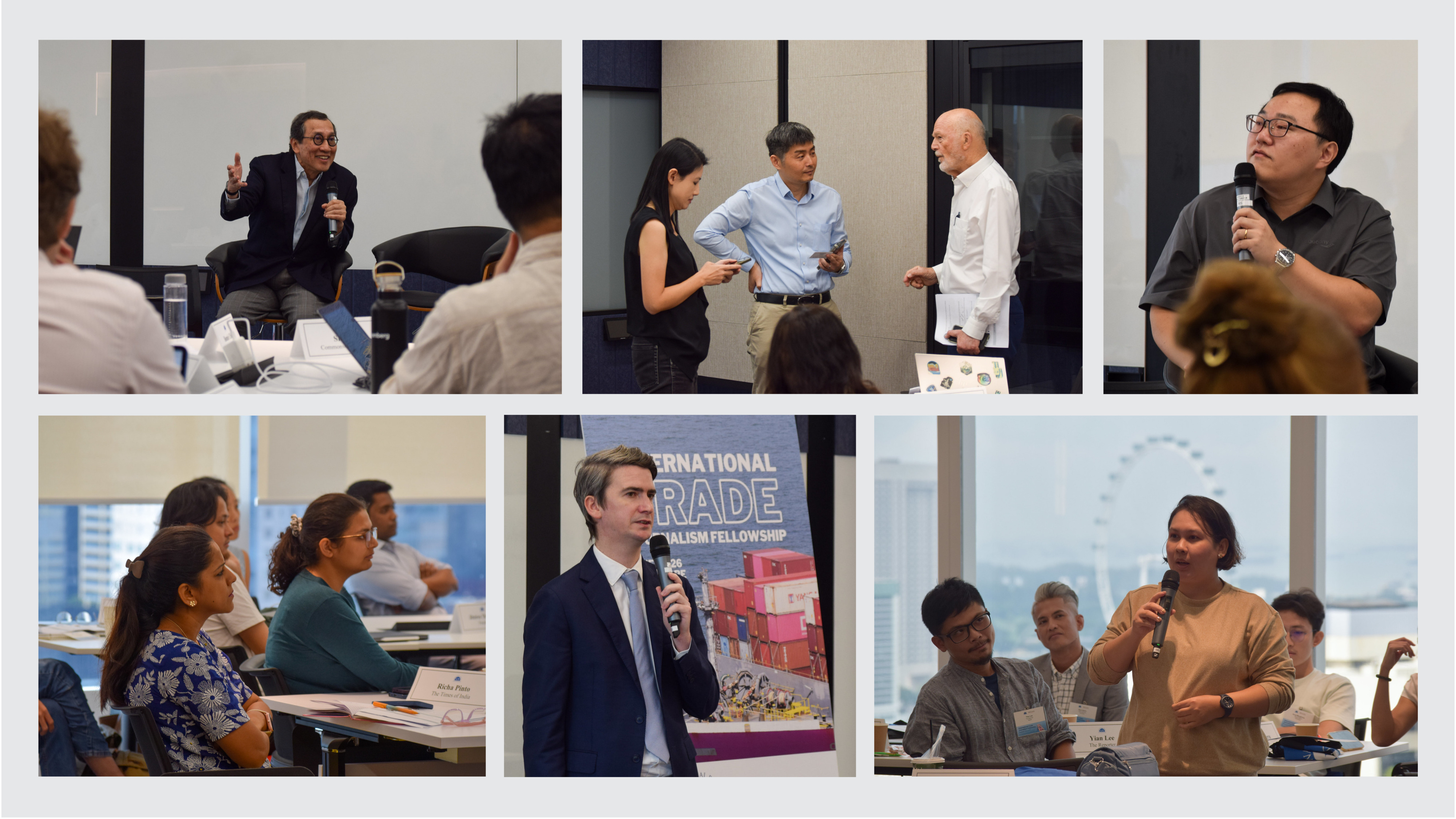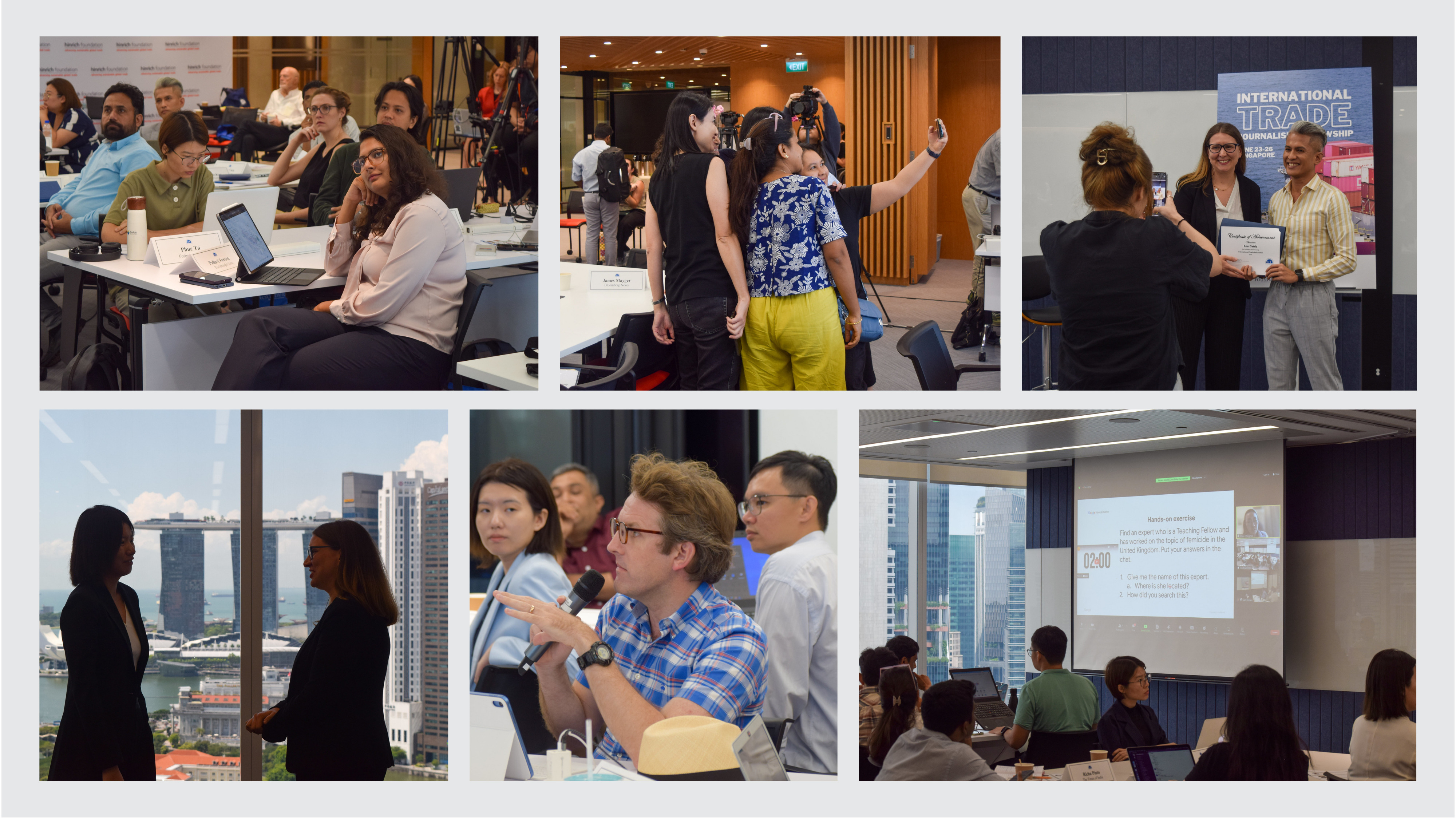MEDIA EDUCATION
NPF International Trade Fellowship 2024
The National Press Foundation annually hosts the International Trade Fellowship workshop for journalists, sponsored by the Hinrich Foundation.
This year, the Foundations welcomed 25 Asia-based journalists at the Hinrich Foundation's office in Singapore. The sessions covered themes such as the impact of US presidential elections on trade, digitization of trade, Asia’s evolving role in global trade, and more.
The training kicked off with a welcome address by Anne Godlasky, President of the Washington, D.C.-based National Press Foundation, and Chuin Wei Yap, the Hinrich Foundation’s research director. Deborah Elms, Head of Trade Policy, delivered the keynote on the rising challenges of global trade distortion, the use of tariffs as a trade policy tool, and fragmenting supply chains.
In the panels that followed, Steven Okun, founder and CEO of APAC Advisors, unpacked the complexities of the US presidential elections and its geoeconomic impact on global trade, providing insights into how the trade policies of Trump and Biden differ.
Manu Bhaskaran, founding CEO of Centennial Asia Advisors, examined India’s economic growth drivers and the challenges it faces in sustaining its growth boom. He highlighted recent changes in the country’s trade and investment outlook and emphasized on the importance of capitalizing the economic opportunities presented by the global “China plus one” strategy.
Heng Dean Law of the climate investment firm Pollination discussed the role of renewable energy in Southeast Asia’s energy transition, underscoring the challenges of decarbonization and transfer of green energy in the region. He noted that Southeast Asia’s geographical terrain poses significant challenges in adopting green infrastructure, especially cross-border power grids.
Kavita Chandran from the Thomson Reuters Foundation addressed the modern slavery issues in global supply chains, covering labor exploitation, human trafficking, and child labor. Daniel Giles from the global standard-setter GS1 briefed Fellows on the advancements in digital trade and its expanding role as an industry sector in international policy.
Chen Gang of the East Asian Institute at the National University of Singapore and Yuan Mei from Singapore Management University provided an overview of the "China shock", including China’s export-driven economic growth, dynamic trade strategies, and its manufacturing success in critical sectors such as electric vehicles, solar panels, and batteries.
The four-day workshop wrapped on 26 June with a session on Asia’s evolving role in geopolitics and global trade by Bilahari Kausikan, former Ambassador-at-Large for Singapore. He addressed a wide range of issues, including ongoing conflicts in Ukraine and Gaza, China and US positions in a rising global geopolitical contest, and Singapore and Asia's outlook in these evolving challenges.
The training program also featured a field visit to the Port of Singapore, the world’s busiest trans-shipment port, and the port’s innovation center, a multimedia showcase of the island-nation’s next-generation supply chain ecosystem.
China charts a new economic future
The global challenges posed by China’s economic expansion and strategies aren't often well understood, especially as a "China Shock 2.0" takes hold, driven by a surge in the country’s exports of electric vehicles, solar panels, and batteries. Chen Gang from the East Asian Institute and Yuan Mei from Singapore Management University delve into China's economic growth and its future prospects.
Digitization: A must for international trade
Regulatory reforms are transforming digitized trade from a "nice to have" into a "must have," according to Daniel Giles, Senior Manager of International Public Policy at GS1.
New reality of global order
US-China strategic competition is now a fundamental reality of international order, but it is important to recognize that competition between great powers and potential for conflict are inherent characteristics of international relations, says Singapore's former Ambassador-at-Large Bilahari Kausikan.
Renewable energy transition in Southeast Asia
Both governments and businesses in Southeast Asia are ramping up investments in renewable energy, but the real challenge lies in distributing this energy from sources to demand centers, says Heng Dean Law, Managing Director at climate investment firm Pollination.
Singapore’s growing electric vehicle market
Electric vehicles play a crucial role in Singapore’s plan for decarbonizing transportation and achieving net-zero goals, says Dean Cher, SP Group’s Head of Mobility, Sustainable Energy Solutions.
India’s next economic surge
India is poised for another growth boom in the coming years, fueled by improved infrastructure, increased financial inclusion, and less red tape, yet it remains a difficult place to do business, says Manu Bhaskaran, founding CEO at Centennial Asia Advisors.
What the 2024 US elections mean for global trade
Regardless of the outcome of 2024 US presidential elections, the country’s trade policy will continue to be protectionist and its foreign policy will remain “transactional”, says Steven Okun, Founder and CEO of APAC Advisors.
Global trade trends to watch
Modern trade policies are intricately intertwined with national security issues, geopolitics, and economic growth, emphasizes Deborah Elms, Head of Trade Policy at the Hinrich Foundation.
Labor abuses and supply chains
Businesses have the responsibility to ensure the human rights of all workers are upheld across their supply chains, not just for those they directly employ, says Kavita Chandran, Journalism Trainer at the Thomson Reuters Foundation.

